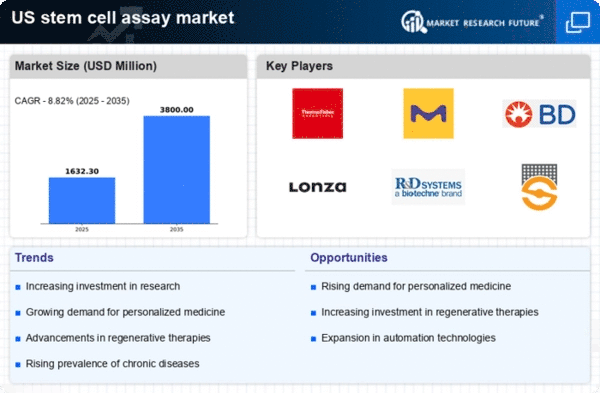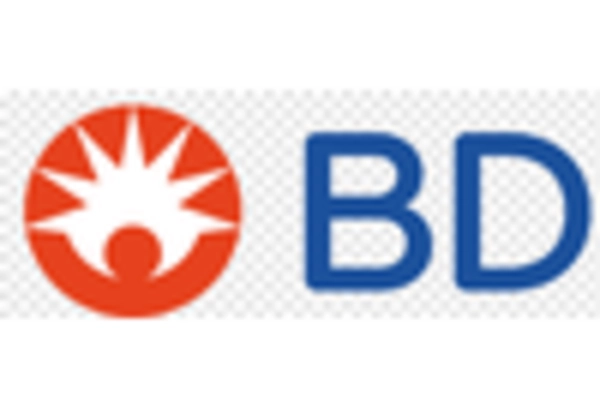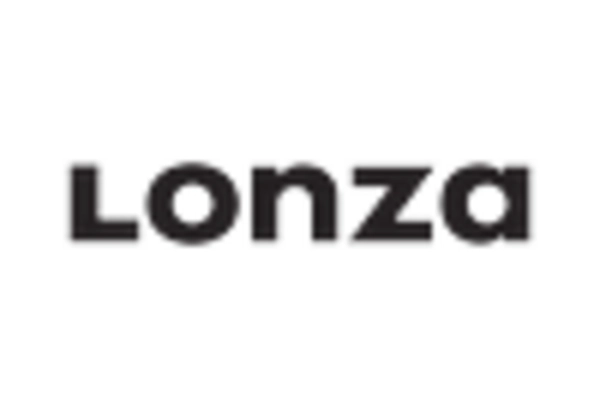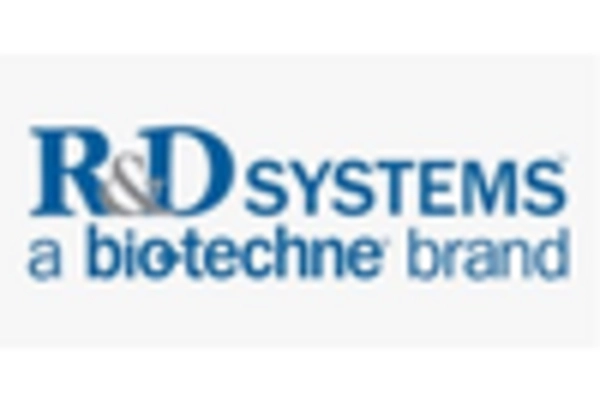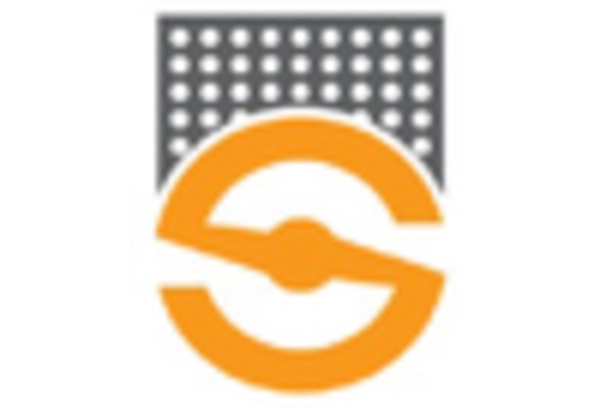Expansion of Research Funding
In the United States, there is a growing trend of increased funding for stem cell research, which significantly impacts the stem cell-assay market. Government agencies and private organizations are allocating substantial resources to support innovative research initiatives. For instance, the National Institutes of Health (NIH) has reported a budget increase for stem cell research, which is expected to enhance the development of new assays. This influx of funding is likely to stimulate advancements in assay technologies, thereby expanding the market. As research progresses, the demand for reliable and efficient stem cell assays will continue to rise, fostering growth in the industry.
Emergence of Advanced Technologies
The stem cell-assay market is being transformed by the emergence of advanced technologies such as CRISPR and high-throughput screening. These innovations enable researchers to conduct more efficient and accurate assays, which are crucial for drug discovery and development. The integration of automation and artificial intelligence in assay processes is also enhancing productivity and reducing costs. As a result, the market is witnessing a shift towards more sophisticated assay platforms that can handle complex biological systems. This technological evolution is expected to drive the growth of the stem cell-assay market, as researchers increasingly adopt these advanced methodologies.
Rising Demand for Personalized Medicine
The stem cell-assay market is experiencing a notable increase in demand for personalized medicine, which is tailored to individual patient needs. This shift is driven by advancements in genomics and biotechnology, enabling more precise treatments. As healthcare providers seek to improve patient outcomes, the use of stem cell assays becomes essential for understanding patient-specific responses to therapies. The market for personalized medicine is projected to reach approximately $2 trillion by 2025, indicating a robust growth trajectory. This trend is likely to propel the stem cell-assay market, as these assays are critical in developing and validating personalized treatment protocols.
Growing Applications in Drug Development
The application of stem cell assays in drug development is expanding, significantly influencing the market. Pharmaceutical companies are increasingly utilizing these assays to evaluate drug efficacy and safety, particularly in preclinical stages. The ability to model human diseases using stem cells allows for more accurate predictions of drug responses. As the pharmaceutical industry invests heavily in research and development, the demand for stem cell assays is likely to increase. The market for drug development is projected to reach $1.5 trillion by 2025, suggesting a substantial opportunity for growth within the stem cell-assay market.
Increased Collaboration Between Academia and Industry
There is a notable trend of increased collaboration between academic institutions and industry players in the stem cell-assay market. These partnerships are fostering innovation and accelerating the translation of research findings into practical applications. Collaborative efforts often lead to the development of novel assays that meet industry standards and regulatory requirements. As universities and research institutions work closely with biotech and pharmaceutical companies, the resulting synergy is likely to enhance the quality and availability of stem cell assays. This collaborative landscape is expected to drive market growth, as it facilitates the rapid advancement of stem cell research and its applications.


